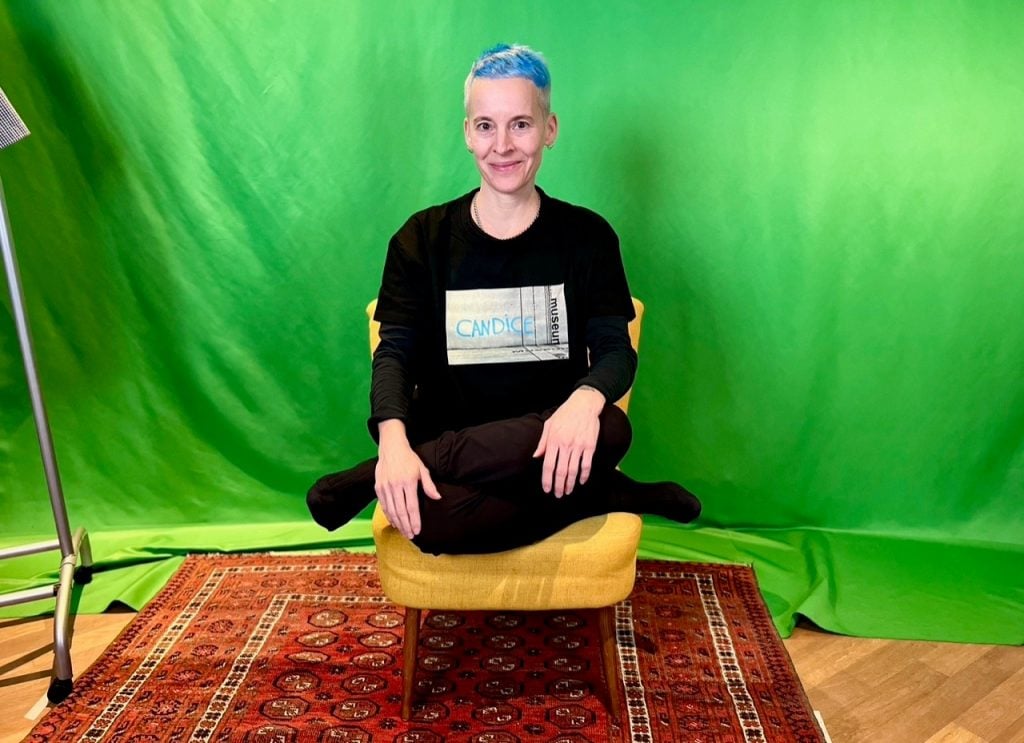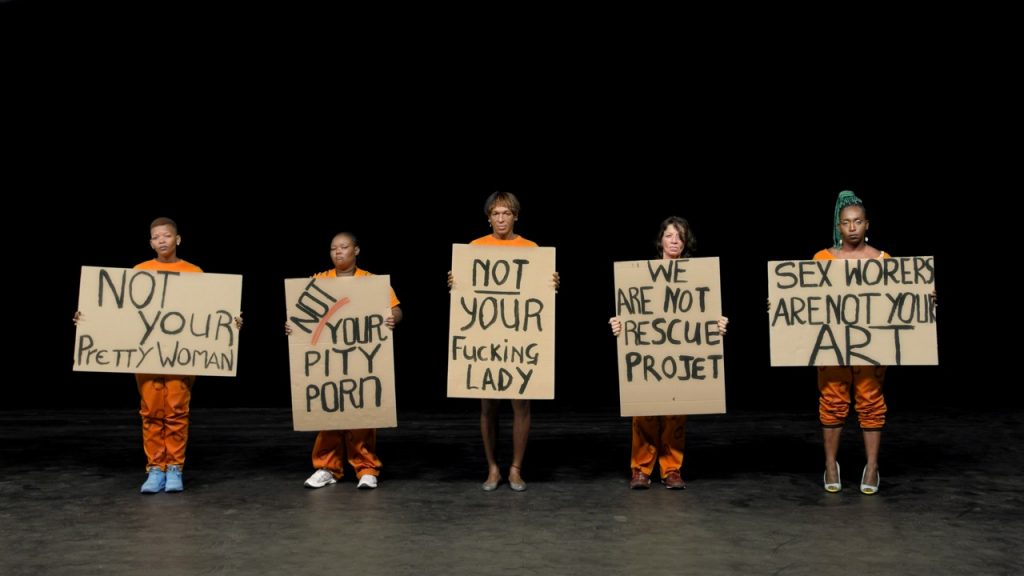Museums & Institutions
Artist Candice Breitz Calls Out German Museum for Canceling Her Show
The museum's leader Andrea Jahn has resigned following the controversial fallout over the cancelation.

The museum's leader Andrea Jahn has resigned following the controversial fallout over the cancelation.

Adam Schrader

Andrea Jahn, the head of the Saarland Museum in Saarbrücken, Germany, has resigned following controversy over the institution’s cancelation of a video installation by artist Candice Breitz last year.
Breitz was set to present TLDR, a video installation about sex work in Cape Town, South Africa, at the museum in 2024, but the show was canceled in November after the artist—who is Jewish—wrote on social media that people should support the liberation of Palestinians from decades of oppression, even as she condemned the “horrific carnage” perpetrated by the Palestinian militia Hamas on October 7.
“For the last few months, I’ve been put through hell by two women who—driven by fear, provinciality and ignorance—chose to embark on a campaign of character assassination, with me as the target. Along the way, via their public communications, I have been described as an ominous threat to Jewish life, a loathsome enemy of Israel, and an unspeakable antisemite,” Breitz said in an email to Artnet News. “Now, the first of the two women, Andrea Jahn—the director of the Saarland Museum (and the person who would have curated my exhibition, had it gone ahead)—has ‘chosen’ to leave her position.”
Breitz said she has resisted the temptation to speak publicly about Jahn’s choice to cancel the show, intending to protect her, but hopes to now clear up the “defamation” allegedly made against her by the former museum director under pressure from state culture minister Christine Streichert-Clivot.
“As it became increasingly clear that both German women had decided that it was fully kosher to denounce and slander a Jewish artist as antisemitic to the ends of preserving their own careers and reputations, I could no longer protect Jahn, despite knowing that she was most certainly (according to information that she herself provided) bullied into endorsing and defending the cancelation of my exhibition in compliance with the agenda of her superior, Streichert-Clivot,” Breitz said.
Artnet News has reached out to Streichert-Clivot and Jahn but did not hear back by press time.
Breitz added that Jahn’s resignation could mark the “first time that a German cultural institution is held publicly accountable for sloppily weaponizing baseless charges of antisemitism—without legal grounds or transparent procedure, and in flagrant disregard for basic civil rights that are enshrined in the German constitution.” The artist said she remains optimistic that Streichert-Clivot “will now have to face the music, too.”
In her email, Breitz described the alleged silencing of artists and academics in Germany amid the war in Gaza as “McCarthyism that continues to infect Germany.” She said she believes that democratic rights such as the freedom of expression and political opinion are being eroded in Germany as discourse breaks down over the war in Gaza. She added that she has not been paid for her completed work.

Candice Breitz. TLDR (2017). Photo courtesy of Goodman Gallery, London
Born and raised in South Africa, Breitz has consistently sought to grapple with identity, race, and discrimination in her work. Based between Berlin and Cape Town, she also recently faced controversy for signing a petition protesting Berlin’s decision to make arts funding available only to those who commit to an antisemitism clause over concerns that it will be used to silence critics of the state of Israel.
When the Saarland exhibit was first canceled, the museum said in a statement to the German media outlet Saarbrücker Zeitung that it “will not provide a platform to any artist who qualifies the exercise of the right to self-defense by the State of Israel in response to a cowardly and brutal terrorist attack as genocide, who justifies the terrorist attack with the long-term conflict-ridden coexistence of Palestinians and Israelis.”
In her response at the time, Breitz said the cancelation was “deeply antisemitic” and some claimed the Saarland Museum had censored the artist. “The climate in Germany at present is such that many Germans feel absolutely justified in violently condemning Jewish positions that are not consistent with their own, in their zeal to confirm their own dedication to anti-antisemitic principles,” the artist said in a November statement to Artnews.
In her latest statement, Breitz expressed criticism of the Saarbrücker Zeitung interviews which “cynically” did not reveal that the artist herself is Jewish. She called it “convenient” that Jahn now “gets to walk away” from the situation.
“Does anybody wonder how it is that the minister was able to so accurately and speedily detect my virulent antisemitism, given that I have been warmly embedded and respected within Jewish community for over 50 years?” Breitz wrote.
The clash of opinion has been simmering in German press, with Barbara Rech, a culture reporter for regional radio station SR3, recently calling the affair one of “concentrated professional and cultural-political incompetence.”
On Sunday, March 10, the Saarbrücken Ministry of Culture announced that Jahn will resign from her post early due to “differing views on the further development of the foundation and its institutions,” according to the German magazine Monopol. Jahn’s contract will end by mutual agreement at the end of April 2024; her appointment was originally due to run until June 30, 2025.
“The last few months have not been easy, not for Dr. Jahn and especially not for the foundation,” Streichert-Clivot said in a statement issued on Sunday. The minister said the foundation needs a “new and self-confident approach” so it can reach a “new and younger visitor groups.”